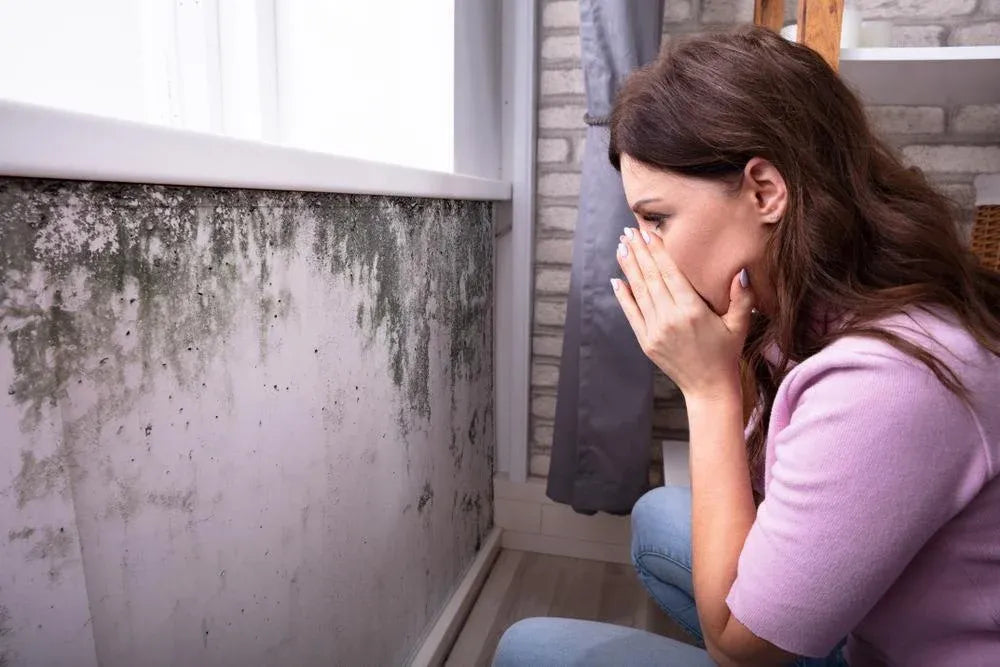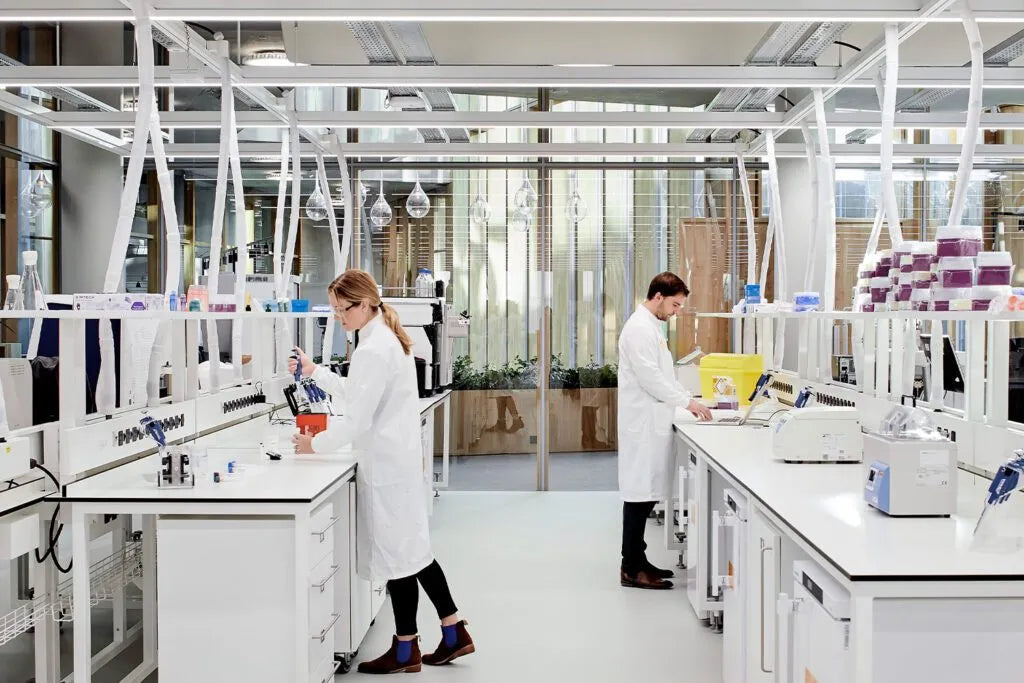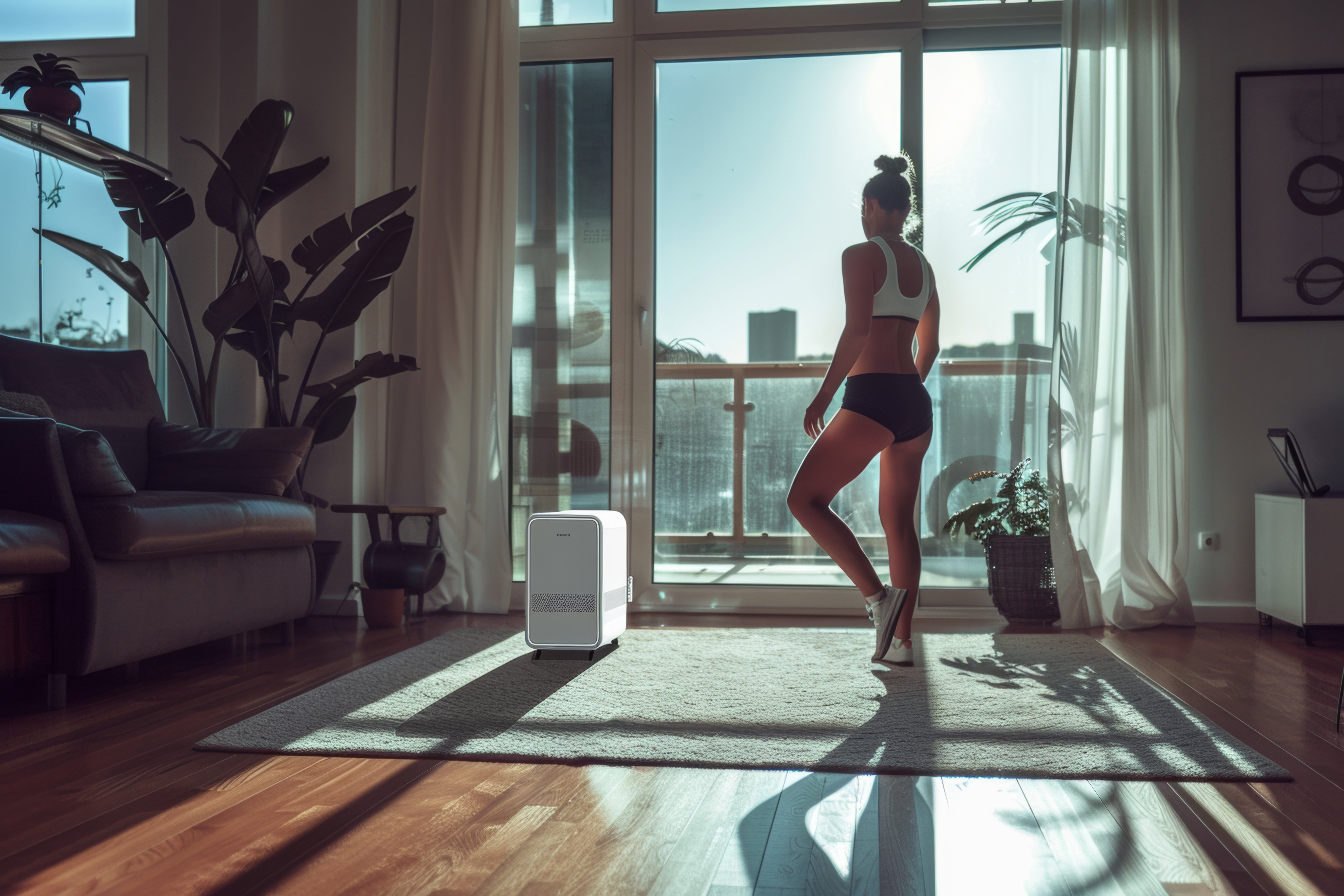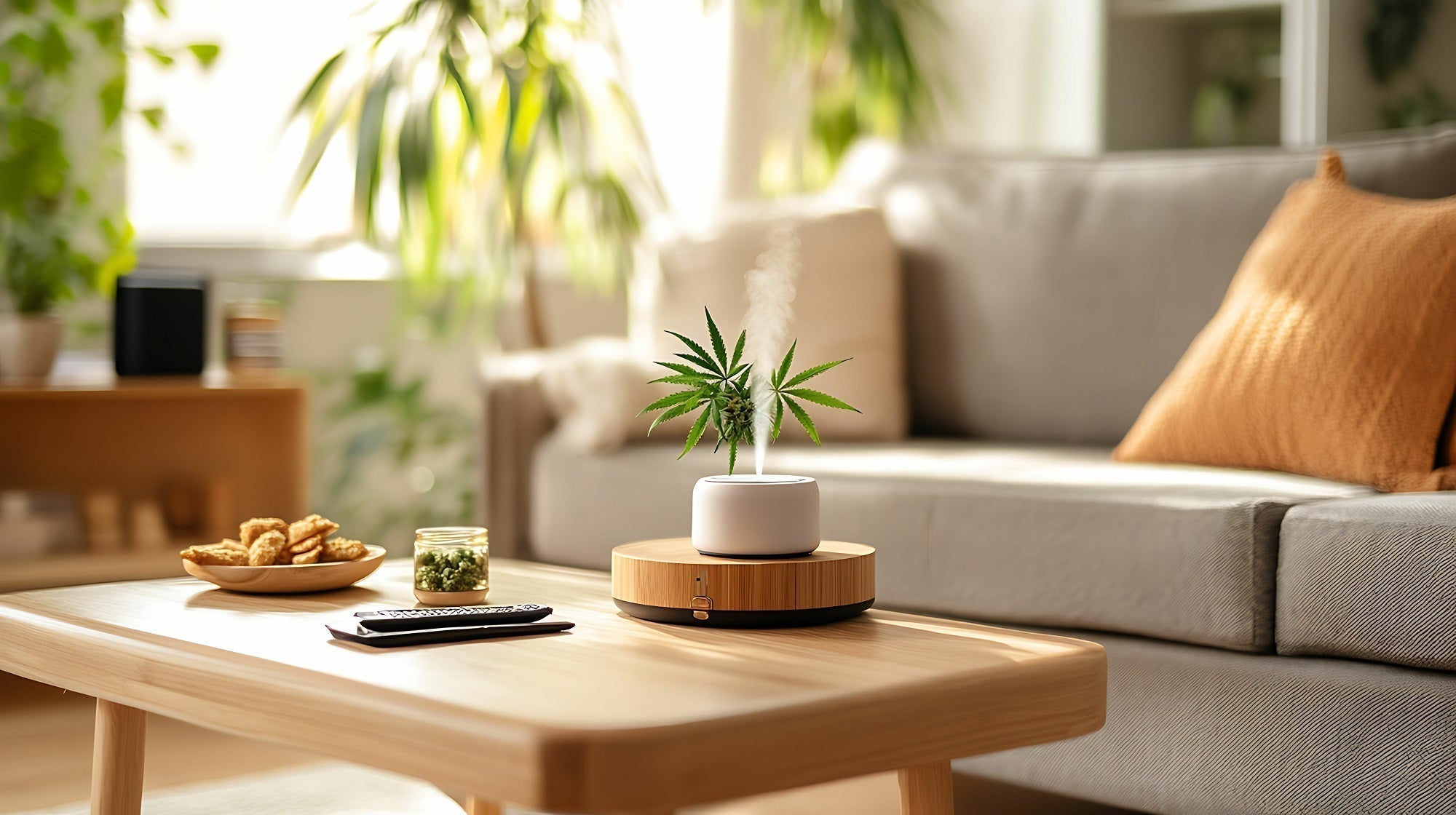The dangers of mould in your home and how an air purifier can help

The death of two-year old Awaab Ishak in 2020 as a direct result of chronic exposure to black mould in the flat he lived in, rightly, caused widespread outrage in the UK. This preventable tragedy highlighted the hidden risk and real danger to your health of untreated mould in homes.
So, what exactly is mould? How can it affect your health, what can you do about mould in your home and does using an air purifier for mould help?
 Mould is a microscopic fungus that breaks down dead organic matter and usually grows in damp and humid places. It’s common to find mould growing on walls, ceilings and around windows, as the fungus feeds on materials like wood, wallpaper and carpet.
Mould is a microscopic fungus that breaks down dead organic matter and usually grows in damp and humid places. It’s common to find mould growing on walls, ceilings and around windows, as the fungus feeds on materials like wood, wallpaper and carpet.
There are several types of mould, some more dangerous to human health than others, such as Pathogenic Mould and Toxigenic Mould. As mould grows, it releases reproductive spores, cells, fragments and “volatile organic compounds” into the air – and it is these that can pose a danger to respiratory health.
Unfortunately, mould is often more dangerous in the winter when temperatures drop and will continue to grow until it's cleaned or removed.
 People living with mould are more likely to suffer from respiratory illnesses, infections, and worsening allergies or asthma. Some people are more affected than others: babies and children, for instance, as well as older people and those with existing respiratory problems.
People living with mould are more likely to suffer from respiratory illnesses, infections, and worsening allergies or asthma. Some people are more affected than others: babies and children, for instance, as well as older people and those with existing respiratory problems.
Common symptoms of an allergic reaction to mould include sneezing, a runny nose, red eyes and skin rash. Mould can also trigger asthma attacks and cause coughing, wheezing and breathlessness.
 If you have mould in your home or office, it’s worth finding out what’s causing the excessive moisture, so you can take steps to limit it. You may need get leaking pipes or gutters fixed or get a professional to remove mould for you if the problem is severe.
If you have mould in your home or office, it’s worth finding out what’s causing the excessive moisture, so you can take steps to limit it. You may need get leaking pipes or gutters fixed or get a professional to remove mould for you if the problem is severe.
In less severe cases, you can usually treat mould yourself. Making small behavioural changes can help, such as taking shorter showers, wiping down condensation in your bathroom or kitchen, using mould surface treatments and ensuring better ventilation in humid spaces.
 The short answer is ‘yes’. Air purifiers, like the MedicAir Pro Mini, can help prevent mould developing in your home or office in the first place and help combat an existing mould issue. The MedicAir Pro Mini captures mould spores in the air (along with other airborne pollutants) and stops them reproducing and spreading throughout your home.
The short answer is ‘yes’. Air purifiers, like the MedicAir Pro Mini, can help prevent mould developing in your home or office in the first place and help combat an existing mould issue. The MedicAir Pro Mini captures mould spores in the air (along with other airborne pollutants) and stops them reproducing and spreading throughout your home.

When choosing an air purifier, look for one that has a minimum HEPA 13 filter. HEPA 13 and above (High-Efficiency Particulate Air) filters are able to trap tiny particles, including mould spores, and keep them from recirculating in the air. You should also look for an air purifier with a high CADR (Clean Air Delivery Rate) rating, as this shows how well the purifier can remove pollutants from the air.
The MedicAir Pro Mini, for example, has a CADR of 400 and an anti-bacterial coated HEPA H14 filter, which is medical grade technology, so it filters out up to 99.997% of viruses and bacteria as small as 0.3 microns, including hay fever and Covid 19.
For more information about how to protect your home and office with the best air purification technology you can get, speak to us today.
So, what exactly is mould? How can it affect your health, what can you do about mould in your home and does using an air purifier for mould help?
What is mould?

There are several types of mould, some more dangerous to human health than others, such as Pathogenic Mould and Toxigenic Mould. As mould grows, it releases reproductive spores, cells, fragments and “volatile organic compounds” into the air – and it is these that can pose a danger to respiratory health.
What causes mould?

Unfortunately, mould is often more dangerous in the winter when temperatures drop and will continue to grow until it's cleaned or removed.
How can mould affect your health?

Common symptoms of an allergic reaction to mould include sneezing, a runny nose, red eyes and skin rash. Mould can also trigger asthma attacks and cause coughing, wheezing and breathlessness.
What can you do about mould in your home?

In less severe cases, you can usually treat mould yourself. Making small behavioural changes can help, such as taking shorter showers, wiping down condensation in your bathroom or kitchen, using mould surface treatments and ensuring better ventilation in humid spaces.
Do air purifiers help with mould?


When choosing an air purifier, look for one that has a minimum HEPA 13 filter. HEPA 13 and above (High-Efficiency Particulate Air) filters are able to trap tiny particles, including mould spores, and keep them from recirculating in the air. You should also look for an air purifier with a high CADR (Clean Air Delivery Rate) rating, as this shows how well the purifier can remove pollutants from the air.
The MedicAir Pro Mini, for example, has a CADR of 400 and an anti-bacterial coated HEPA H14 filter, which is medical grade technology, so it filters out up to 99.997% of viruses and bacteria as small as 0.3 microns, including hay fever and Covid 19.
For more information about how to protect your home and office with the best air purification technology you can get, speak to us today.
Recent Blogs
Independent Global Testing Confirms MedicAir’s Filtration Excellence
Two of MedicAir’s flagship systems – the MedicAir Pro and MedicAir Pro Max – have been independently verified for their outstanding performance in real-world environments, following rigorous testing conducted in Kuwait by international air filtration expert Dr Iyad Al-Attar.
2025/09/03
24 min read
Heatwaves and Indoor Air Quality: How MedicAir Safeguards Health and Productivity
The recent heatwave has brought swelteringly high temperatures across the UK, significantly impacting indoor air quality (IAQ) and indoor environmental quality (IEQ).
2025/07/14
33 min read
Why Indoor Air Quality Matters for Cannabis Grow Rooms
With MedicAir, you get more than just air purification–you get peace of mind, knowing your plants are thriving in a controlled, contaminant-free environment.
2025/04/11
42 min read


